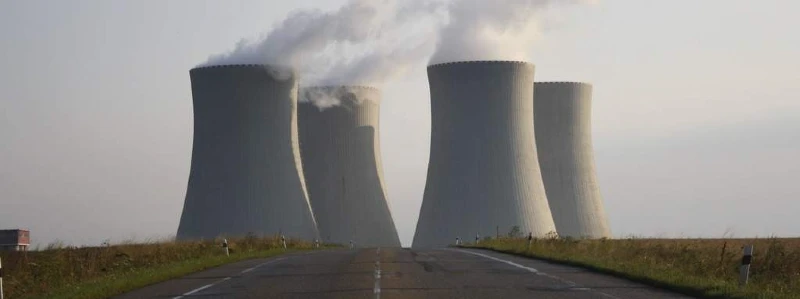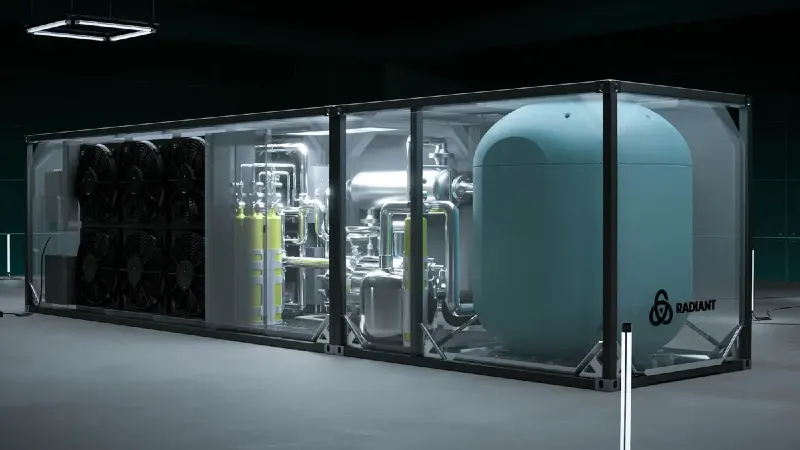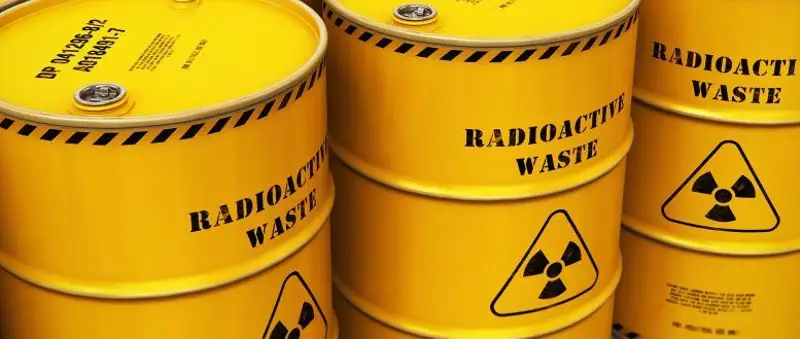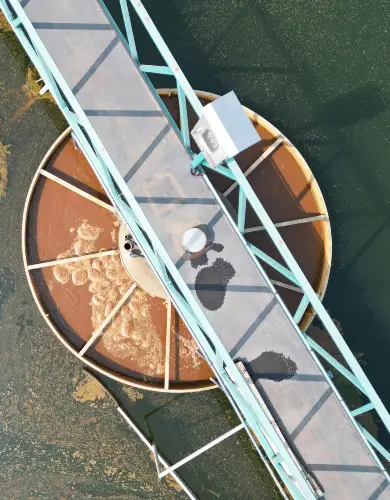What is nuclear energy?
In April 2022, the government announced a shift in energy policy, putting nuclear power at the centre of the UK’s future energy production. The government forecasts that 25% of the UK’s power capacity will be produced by nuclear by 2050.
The shift to nuclear is driven by two principal goals, reduce carbon emissions and improve energy independence.
Yet, nuclear energy has many drawbacks compared to renewable energy technologies, particularly considering some of its latest developments which are making it increasingly popular.
Here’s our guide to nuclear energy, what it is, how it works and what it means for you.
Contents
- What is nuclear energy?
- How does nuclear energy work?
- Is nuclear energy renewable?
- Progressive nuclear energy
- Does my business use nuclear energy?
- How expensive is nuclear energy?
- Is nuclear energy bad for the environment?
- Advantages vs disadvantages of nuclear energy
- External Resources
What is nuclear energy?

Put simply, nuclear energy is the generation of electricity from nuclear reactions.
In nuclear power, binding energy stored in the centre of certain atoms is released in nuclear fission. In nuclear fission, an atom of uranium is split into smaller atoms, releasing a huge amount of energy. The released energy is harnessed to generate electricity.
How does nuclear energy work?
A nuclear power station uses a highly concentrated sample of radioactive elements. Neutrons are fired at the radioactive material to initiate a chain reaction of nuclear fission. The reaction is carefully controlled to produce a steady amount of heat energy.
Water is passed through the nuclear reactor chamber, heating it to 300 degrees. The water boils into steam, driving a turbine. The turbines spin, turning nuclear energy into electricity.
The electricity produced from a nuclear power station feeds into the national grid to supply homes and businesses across the country.
Is nuclear energy renewable?
Nuclear energy is a green energy source as the process doesn’t produce any greenhouse gases. However, nuclear energy is not renewable, as its fuel source is finite under current technology.
Traditional nuclear power plants use a rare isotype of uranium known as U-235. The Nuclear Energy Agency estimates that uranium resources will run out in the next 200 years, given current consumption rates.
Some argue that nuclear fission is however a renewable resource, as there are many other isotopes that could produce energy through fission reactions on Earth, not to mention the solar system.
Mining and recovery techniques are likely to improve over time, and humans may even crack the timeless conundrum of nuclear fusion energy in the near future.
On top of this, significant research is going into these two advancements that could significantly extend the use of nuclear energy generation:
i. Extraction of uranium from seawater, a potentially unlimited source
ii. Reactor technology that needs significantly less uranium
Progressive nuclear energy
Besides the aforementioned innovations that will make nuclear a renewable source of energy, improvements in light water reactors, new fuel types like TRISO and automated safety systems are making nuclear energy increasingly safer and more efficient.
Some of these innovations are being implemented in a new modular approach to nuclear reactors: SMRs and Microreactors.
Colossal capital costs are reduced as these can be gradually scaled, it takes less time to build which means a faster return on investments and since there is less fuel per reactor, it is intrinsically safer than traditional mega-reactors (albeit more expensive, due to economies of scale).
Many of the SMR components may come pre-built on an assembly line and Microreactors (nuclear in a shipping container!) can be used for small-scale and emergency use cases.

Does my business use nuclear energy?
On average, 16% of the energy supplied to the grid is produced from power stations in the UK (known as the fuel mix). There are 9 nuclear reactors producing electricity across 5 locations in Britain.
If imported electricity from France were included, this percentage would be even higher as France is a nuclear powerhouse.
However, the percentage of nuclear energy has been in decline over the past two decades as the government is rapidly deploying wind and solar energy while nuclear projects have been mostly shelved (besides Hinkley Point C, which is due to come online during this decade).
In fact, the UK was the second country to ever produce nuclear energy for the national grid when it opened Calder Hall in Cumbria in 1956 and can be considered one of the cradles of this technology.
Business energy suppliers offer a range of business tariffs to allow companies to choose how their power is generated, including low-carbon nuclear energy. Use our business energy comparison tool to see if your business can save with lower commercial electricity rates.
How expensive is nuclear energy?
According to our LCOE comparison building nuclear power is becoming expensive in comparison to other forms of green energy such as wind and solar, despite being a highly efficient way of producing electricity.
Reasons for this include the increasing costs of insurance after nuclear disasters like Fukushima and the increasing costs of defence across the supply chain of Uranium (There is a defence agenda in keeping Uranium away from unwanted parties who could use them to produce nuclear weaponry).
Also, large reactors take decades to plan and build, making it an increasingly risky investment for energy companies (just think of how many prime ministers could stop it halfway on a whim).
And this goes without mentioning the anti-nuclear sentiment in many parts of the UK, which makes it a politically difficult subject. As we mentioned earlier though, modular nuclear energy designs could solve many of these problems.
However, the reality is that despite its higher price per unit of energy and complexity, nuclear energy is necessary for reaching net-zero emissions by 2050.
It is the only trialled-and-tested, baseload low-carbon energy technology (i.e. it can produce energy 24/7 and adjust it to the fluctuating national demand in total independent of weather conditions), which makes it a necessary addition.
Is nuclear energy bad for the environment?
The key advantage of nuclear energy is that it can produce baseload electricity without producing greenhouse gases. The only other way of doing so is through fossil fuels, but these are exactly what the world is trying to get rid of.
This is crucial, particularly in countries like China whose burgeoning economies require copious amounts of energy that realistically only nuclear energy can meet (China is also building renewables at record speed, but it cannot build them fast enough to meet demand).
However, nuclear energy has two other ways in which it can harm the environment:
Firstly, nuclear accidents such as Chornobyl and Fukushima are uncommon but can have disastrous consequences for people and the surrounding environment. The nuclear power industry has become significantly safer over time as technology has improved and is reckoned to have one of the lowest fatalities per unit of energy compared to fossil fuel energy sources.
The bigger problem arises from nuclear waste. A nuclear power plant produces spent fuel, a highly radioactive substance that needs to be safely isolated for thousands of years before it is safe for the environment. The storage of nuclear waste is a big issue for the UK, with a temporary site in Sellafield, Cumbria storing all the waste produced by the past 70 years of nuclear power in the UK.

Advantages vs disadvantages of nuclear energy
Here are the advantages and disadvantages of using nuclear energy.
Advantages of nuclear energy:
- Produces no greenhouse gases when producing energy
- It provides baseload electricity that can be adjusted to meet demand.
- Reliable sources of energy
Disadvantages of nuclear energy:
- Produces radioactive waste
- Accidents can be catastrophic
- Decommissioning nuclear plants is expensive
External Resources
- Nuclear Energy Agency
- ourworldindata.org
- AquaSwitch business gas comparison service.

